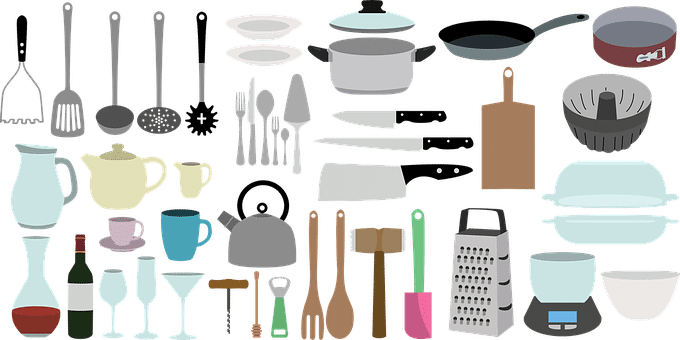Here are some basic guidelines for safe and healthy cooking:
Appliances:
- Natural gas stoves need proper ventilation to avoid accumulation of nitrogen oxide, carbon monoxide & formaldehyde in the air
Food Preparation:
- there is no benefit to using detergents like peroxy acetic acid or chlorine to inactivate E. Coli. Washing food with water is sufficient
- there is no need to cool food before refrigerating as bacteria begins to multiply after 2 hrs or more at room temperature. However, be sure to place a protective coaster under the hot container so as not to crack the fridge shelf
- AVOID frying, sauteing or broiling at high temperatures
- the light & oxygen resulting from cooking unsaturated oils causes a chemical reaction that allows carcinogens to form, especially in oils containing 20% or more omega 6 fats
- the above process does not occur when baking, poaching, steaming or eating raw
Food Storage:
- many plastic food containers and drink bottles contain bisphenol A (BPA), a synthetic estrogen that increases breast cancer risk
- use reusable ceramic, glass or steel containers
- you can use plastics labelled #2, 4 or 5
- if plastic is labelled #7, look for a leaf symbol or PLA label to ensure it’s BPA free
Kitchenware:
- Cast-Iron pans are excellent heat conductors
- Cast-Iron coated with enamel are also great heat conductors
- Dutch ovens are large lidded pots that can go from stovetop to oven and should be enamelled cast iron
- Glass, Corningware, Enamel & Porcelain are also good option
- Pressure Cookers should be stainless steel
- Stainless steel pots should have thick bottoms. Aluminum-clad bottoms are fine as they are on the outsided of the pot to act as a heat conductor
- Utensils should be stainless steel
AVOID cookware made of the following:
- Aluminum: this metal is not easily removed from the body and the one common denominator for people who suffer from Alzheimer’s is they have a very high accumulation of aluminum in their brain tissue
- aluminum is a soft metal that easily transfers to food from spoons & ladles made of harder metal
- it reacts with acids in the food which causes binding and loss of Vitamin C
- Ceramic cookware may have glazes and paints that contain lead
- Copper & Pewter are made of a mixture of lead and silver which are toxic and can leach into the food during cooking
- Teflon-coated cookware is only safe as long as it doesn’t get scratched. But this requires the use of soft plastic utensils that can melt in a hot pot. You also need to be vigilant about washing and handling the pots to avoid scratching. All this extra care is not likely to take place indefinitely and damage will render this cookware unsafe in the long run


